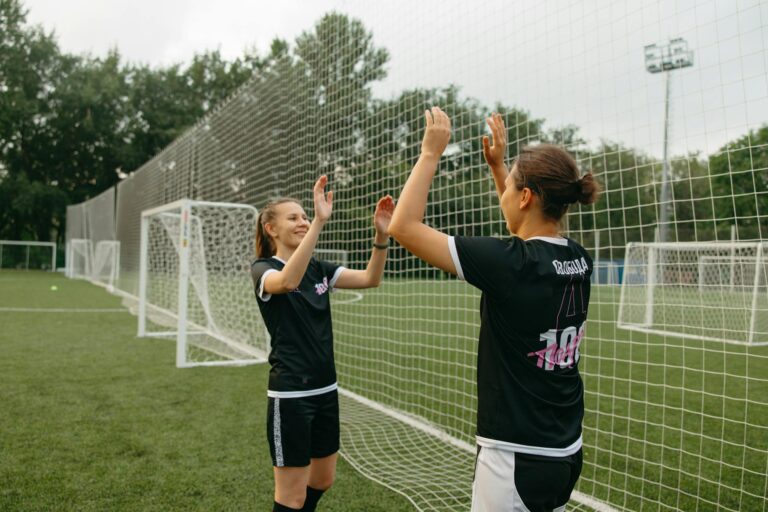The world of elite sports often presents a captivating dichotomy: the awe-inspiring physical prowess of athletes juxtaposed with the intense mental fortitude required to reach the pinnacle of their disciplines. We marvel at the gymnast’s flawless dismount, the swimmer’s explosive speed, and the tennis player’s lightning-fast reflexes. However, as four-time Olympic gold medalist Venus Williams astutely observed, physical training is only half the equation; the ability to “train your mind as much as your body” is equally crucial.
In the demanding arena of the Olympic Games, athletes arrive in peak physical condition, their bodies finely tuned instruments honed for ultimate performance. Yet, alongside this rigorous physical preparation, lies a critical component often unseen by the spectators: mental preparation.
The Relentless Pressure of the Olympics
Dr. Adam Shunk, a sports psychologist and former U.S. high jump champion, encapsulates the immense pressure faced by Olympic athletes: “There’s not more build up, anticipation or peak to somebody’s career than that. When you’re at that level to make a team or possibly medal at the Olympics, you train for that moment for four years, so that creates some incredible challenges. ” The Olympic Games represent the culmination of years of relentless dedication, sacrifice, and unwavering focus, all distilled into a single, fleeting moment.
This intense pressure can take a significant toll on an athlete’s mental well-being. We have witnessed prominent Olympians like Simone Biles, Naomi Osaka, and Caleb Dressel step away from their sports to prioritize their mental health, highlighting the growing recognition of the psychological demands placed on elite athletes. The aftermath of the Olympics can also present challenges, with some athletes experiencing post-Olympic depression as they navigate the transition from the intense spotlight and the cessation of their rigorous training routines.
However, the resilience of these athletes is equally remarkable. Simone Biles, for instance, returned to the Olympic stage, adding to her medal collection at the Paris 2024 Games. Caleb Dressel also demonstrated his prowess, securing multiple medals in Paris. And Naomi Osaka has made her return to the Women’s Tennis Association Tour, showcasing the ability of these athletes to overcome adversity and return to competition.
The Mental Edge: Thriving Under Pressure
The ability to manage pressure and external factors can be the defining characteristic that separates champions from their competitors. Research in the Journal of Sports Sciences suggests that successful Olympians possess a high degree of self-confidence, the capacity to block out distractions, the ability to manage their arousal levels, a strong goal-oriented mindset, and a healthy approach to perfectionism.
Ultimately, the mastery of seemingly simple yet profoundly impactful mental decisions, such as prioritizing sleep, limiting social media consumption, and resisting temptations, can be the key differentiator.
The Three Categories of Mental Obstacles
Sports psychologists often categorize the mental obstacles faced by athletes into three distinct phases: struggling, surviving, and thriving.
- Struggling: In this initial phase, athletes grapple with fundamental challenges such as behavioral habits, relationship issues, anxiety, or depression, stemming from various life stressors. These underlying issues can hinder an athlete’s ability to perform consistently, even under routine conditions.
- Surviving: Clinical and Sports Psychologist and PsyOptimal Sports’ founding Clinician, Dr. Wayne Chappelle, describes the “surviving” phase as a state where athletes are “adapting, performing, showing up, doing reasonably well, and practicing consistently, but I’m not achieving my greatest potential. ” Athletes in this phase can perform adequately under normal circumstances but falter when faced with adverse conditions like bad weather, inadequate sleep, or suboptimal equipment.
- Thriving: The pinnacle of mental resilience is the “thriving” phase. Here, athletes consistently achieve extraordinary feats, even under the most challenging and undesirable conditions. Dr. Chappelle emphasizes that this is “the difference between choke and clutch performances. “
The Psychology of Elite Performance
You can’t undervalue the importance of athletes developing a self-concept that extends beyond their athletic identity, enabling them to navigate the inevitable setbacks and low moments with greater resilience.
As the legendary 23-time Olympic gold medalist Michael Phelps once said, “I can only control my performance. If I do my best, then I can feel good at the end of the day. ” This sentiment highlights a crucial element of mental strength: the ability to differentiate between what an athlete can and cannot control.
Dr. Chappelle notes that many athletes struggle with this distinction, emphasizing that “You can be at the right time, at the right place, perfectly execute and yet the ball still won’t go in. ” He advocates for a focus on the controllable aspects – effort and movement – rather than fixating on the uncontrollable outcome. This approach fosters emotional stability and greater consistency in performance.
The Power of Realistic Expectations
Expectations play a pivotal role in athletic performance. Athletes tend to perform optimally when their expectations align with reality. Positive and realistic expectations can energize and motivate athletes, fostering a mindset conducive to peak performance. Conversely, negative or unrealistic expectations can become self-fulfilling prophecies, hindering an athlete’s motivation and increasing the likelihood of failure.
Dr. Chappelle cautions against the dangers of unrealistic expectations, stating, “When we have unrealistic expectations, we set ourselves up for a lot of disappointment, and we set ourselves up for failure. ” He highlights that the best athletes cultivate the ability to act instinctively, minimizing overthinking, which can often lead to negative expectations.
The support system surrounding an athlete is also crucial in shaping expectations. Coaches and teammates play a vital role in fostering positive and realistic expectations, reinforcing the idea that “the best version of oneself is never by oneself. It’s always with the support of others,” as Dr. Chappelle emphasizes.
Navigating External Influences
The influence of those closest to the athlete, such as family members and friends, can also impact their expectations. Well-intentioned but misguided attempts to inflate an athlete’s ego can lead to unrealistic self-expectations, creating potential for disappointment.
Dr. Chappelle also identifies specific habits and external factors that can impede an athlete’s ability to achieve “clutch performances. ” These include:
- Bottle: Representing alcohol or substance abuse, including both legal and illegal substances, as well as the misuse of supplements.
- Wallet: Poor financial management, characterized by excessive spending, financial illiteracy, or relinquishing control of finances to others.
- Zipper: Engaging in behaviors that lead to trouble due to sexual temptations.
- Temperament: The inability to effectively regulate emotions such as anxiety, depression, anger, and frustration, which can lead to impulsive and regrettable actions.
- Pride: An inflated ego that prioritizes individual needs over the team’s best interests.
- Users: Individuals with ulterior motives who exploit the athlete’s trust for personal gain. Dr. Chappelle warns that these “users” can be family members, friends, or romantic partners.
- Control and Commitment: The futile attempt to control uncontrollable factors and a lack of commitment to the practices and behaviors that foster improvement.
Both Dr. Chappelle and Dr. Shunk emphasize the critical importance of an athlete’s social circle. Dr. Shunk advises athletes to “surround yourself by who you want to be” and to be intentional about choosing a supportive and positive environment.
The Mindset of a Champion
Ultimately, consistent preparation and a resilient mindset are indispensable for sustained success. Dr. Chappelle advocates for a daily “growth mindset,” characterized by a humble and proactive approach: “What am I going to do today to be extraordinary, and what do I need to do differently today, in order to help me stay that way, because the conditions today are different from what they were yesterday? “
By embracing this daily self-reflection, athletes can cultivate continuous improvement and maintain perspective, recognizing that their growth as individuals is paramount, regardless of seasonal outcomes.
Beyond the Arena: Holistic Growth
Dr. Chappelle stresses the significance of holistic development, emphasizing that an athlete’s growth as a person is as important as their athletic achievements. He encourages athletes to cultivate a thriving life beyond sports, providing them with a more robust foundation to navigate the challenges of their athletic careers.
Dr. Chappelle’s recurring question to athletes – “Are you the same person that you were two years ago? ” – prompts critical self-reflection. He views stagnation as “a problem,” advocating for continuous growth and evolution. He believes that the stressors encountered by athletes should serve as catalysts for personal growth, enabling them to manage future challenges with greater resilience.
In conclusion, the journey of an elite athlete transcends the boundaries of the sports arena. True success lies not only in medals and victories but also in the athlete’s commitment to personal growth, resilience, and the cultivation of a mindset that values continuous improvement and holistic well-being.
This post was inspired by “For athletes at the top of the game it is mind and body” by Lance Roller IIon News Decoder.

